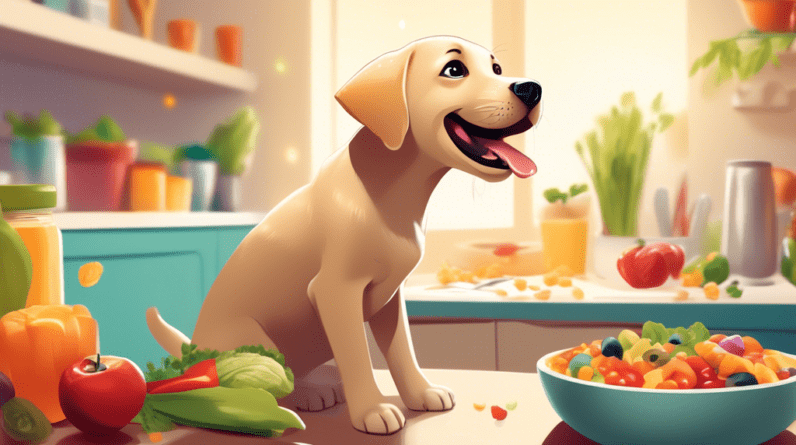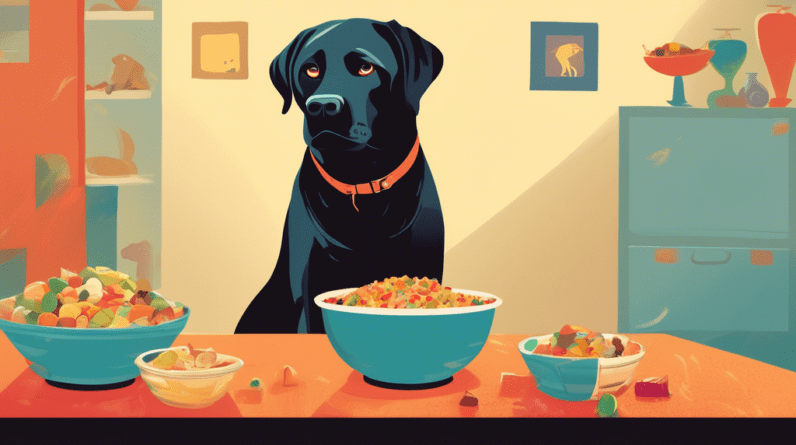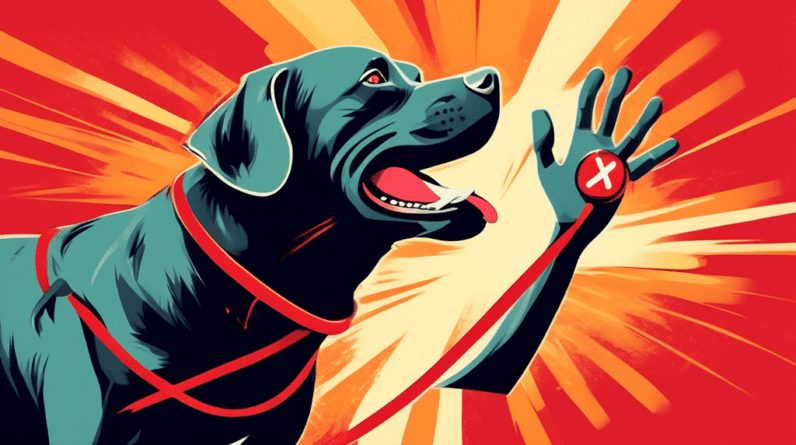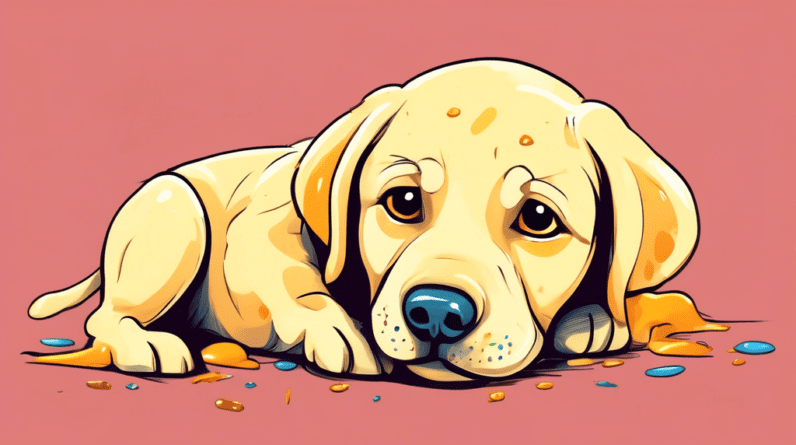
Understanding Your Labrador Puppy’s Nutritional Needs
Why Proper Nutrition Matters for Your Lab Puppy
Just like human babies, Labrador puppies have specific dietary needs to support their rapid growth and development. Feeding your furry friend the right food in the correct amounts is crucial for:
- Healthy Bones and Joints: Labs are prone to hip and elbow dysplasia, and proper nutrition during puppyhood can significantly reduce the risk of these conditions.
- Optimal Muscle Growth: High-quality protein provides the building blocks for strong muscles, essential for an active breed like Labradors.
- Energy and Vitality: Balanced nutrition ensures your puppy has the energy to learn, play, and grow into a happy and healthy adult dog.
- Strong Immune System: Proper nutrition strengthens the immune system, protecting your puppy from illnesses.
- Shiny Coat and Healthy Skin: Essential fatty acids in their diet contribute to a lustrous coat and healthy skin.
Choosing the Right Food for Your Labrador Puppy
Puppy Food vs. Adult Dog Food
Feeding your Lab puppy food specifically formulated for their life stage is crucial. Here’s why:
- Higher Calorie Content: Puppy food has a higher calorie density to meet the energy demands of rapid growth.
- Increased Protein Levels: Growing puppies require more protein for muscle and tissue development.
- Balanced Calcium and Phosphorus: The right balance of these minerals is essential for strong bones and teeth.
- DHA for Brain Development: Docosahexaenoic acid (DHA), an omega-3 fatty acid, is crucial for brain and vision development.
Dry Kibble, Wet Food, or a Combination?
The best type of food for your Labrador puppy depends on your preference and their individual needs. Here’s a breakdown:
- Dry Kibble: Convenient, affordable, and promotes dental health by scraping away plaque.
- Wet Food: Higher in moisture content, which can be beneficial for picky eaters or puppies prone to dehydration. It’s also generally more palatable.
- Combination Feeding: Mixing dry and wet food can provide the benefits of both options.
Decoding the Ingredients List
When choosing puppy food, always prioritize quality over price. Look for these key features on the ingredient list:
- Named Meat Source as the First Ingredient: Chicken, beef, fish, or lamb should be the primary ingredient.
- Whole Grains or Grain-Free Options: Opt for whole grains like brown rice or oatmeal, or choose a grain-free formula if your puppy has sensitivities.
- Avoid Artificial Colors, Flavors, and Preservatives: These additives offer no nutritional value and may be harmful.
Breed-Specific Formulas
While not strictly necessary, some pet food brands offer formulas specifically designed for Labrador Retrievers. These formulas often address breed-specific needs, such as joint health and skin sensitivities.
Establishing a Feeding Schedule and Routine
How Much to Feed Your Labrador Puppy
The amount of food your Labrador puppy needs will vary depending on their age, activity level, and metabolism. Here’s a general guideline:
| Age | Daily Feeding Amount (Cups) | Number of Feedings per Day |
| 8-12 weeks | 1-1.5 | 4 |
| 3-6 months | 2-3 | 3 |
| 6-12 months | 2.5-4 | 2 |
Note: These are just estimates. Always refer to the feeding guide on your chosen puppy food packaging and consult with your veterinarian for personalized recommendations.
Creating a Feeding Schedule
Establishing a regular feeding schedule helps regulate your puppy’s digestion and prevents overfeeding. Here’s a sample schedule:
- Morning: 7 AM
- Midday: 12 PM
- Afternoon: 5 PM
- Evening: 10 PM
As your puppy grows older, you can gradually reduce the number of feedings per day.
Making Mealtime a Positive Experience
To encourage healthy eating habits, follow these tips:
- Choose a Quiet Feeding Spot: Minimize distractions during mealtimes.
- Use a Designated Bowl: Stainless steel or ceramic bowls are hygienic and easy to clean.
- Offer Fresh Water at All Times: Keep a bowl of fresh water available to your puppy throughout the day.
- Avoid Free-Feeding: Free-feeding can lead to overeating and make it difficult to monitor your puppy’s food intake.
Transitioning to Adult Food
When to Switch
Most Labrador Retrievers can transition to adult dog food between 12-18 months of age. However, it’s always best to consult with your veterinarian for personalized advice.
Making a Smooth Transition
To prevent digestive upset, gradually transition your puppy to adult food over 7-10 days. Start by mixing a small amount of adult food into their regular puppy food, gradually increasing the ratio of adult food each day.
Common Feeding Mistakes to Avoid
Avoid these common feeding mistakes to ensure your Labrador puppy’s health and well-being:
- Overfeeding: Overfeeding can lead to obesity and joint problems. Follow the feeding guide on the food packaging and consult with your veterinarian.
- Feeding Table Scraps: While it’s tempting to share your food with your furry friend, table scraps can upset their stomach, contribute to obesity, and lead to begging habits.
- Giving Too Many Treats: Treats should make up no more than 10% of your puppy’s daily calorie intake. Choose healthy, low-calorie treats.
- Ignoring Changes in Appetite: A sudden change in appetite can be a sign of illness. If you notice any changes in your puppy’s eating habits, consult with your veterinarian.
The Importance of Hydration
Water is essential for all bodily functions, including digestion, temperature regulation, and waste removal. Always ensure your Labrador puppy has access to fresh, clean water.
Factors Affecting Water Intake
Several factors can influence your puppy’s water intake, including:
- Activity Level: More active puppies will need more water to stay hydrated.
- Weather: Hot and humid weather can increase water intake.
- Diet: Puppies on a dry kibble diet may drink more water than those on wet food.
Signs of Dehydration
Watch for these signs of dehydration in your Labrador puppy:
- Loss of appetite
- Lethargy
- Dry nose
- Sunken eyes
- Panting
If you notice any of these signs, contact your veterinarian immediately.
Supplements for Labrador Puppies
Are Supplements Necessary?
In most cases, a high-quality, balanced diet provides all the nutrients your Labrador puppy needs. However, your veterinarian may recommend supplements in certain situations, such as:
- Joint Support: Glucosamine and chondroitin supplements can promote joint health, especially in breeds prone to dysplasia.
- Skin and Coat Health: Omega-3 fatty acid supplements can improve skin and coat condition.
- Digestive Support: Probiotics can aid digestion and promote a healthy gut.
Consult with Your Veterinarian
Before giving your Labrador puppy any supplements, always consult with your veterinarian. They can assess your puppy’s individual needs and recommend the appropriate dosage.
Conclusion
Feeding your Labrador puppy a nutritious diet is crucial for their overall health and well-being. By choosing the right food, establishing a regular feeding schedule, and monitoring their water intake, you can set your furry friend up for a long and healthy life. Remember to consult with your veterinarian for personalized advice and address any concerns you may have.






